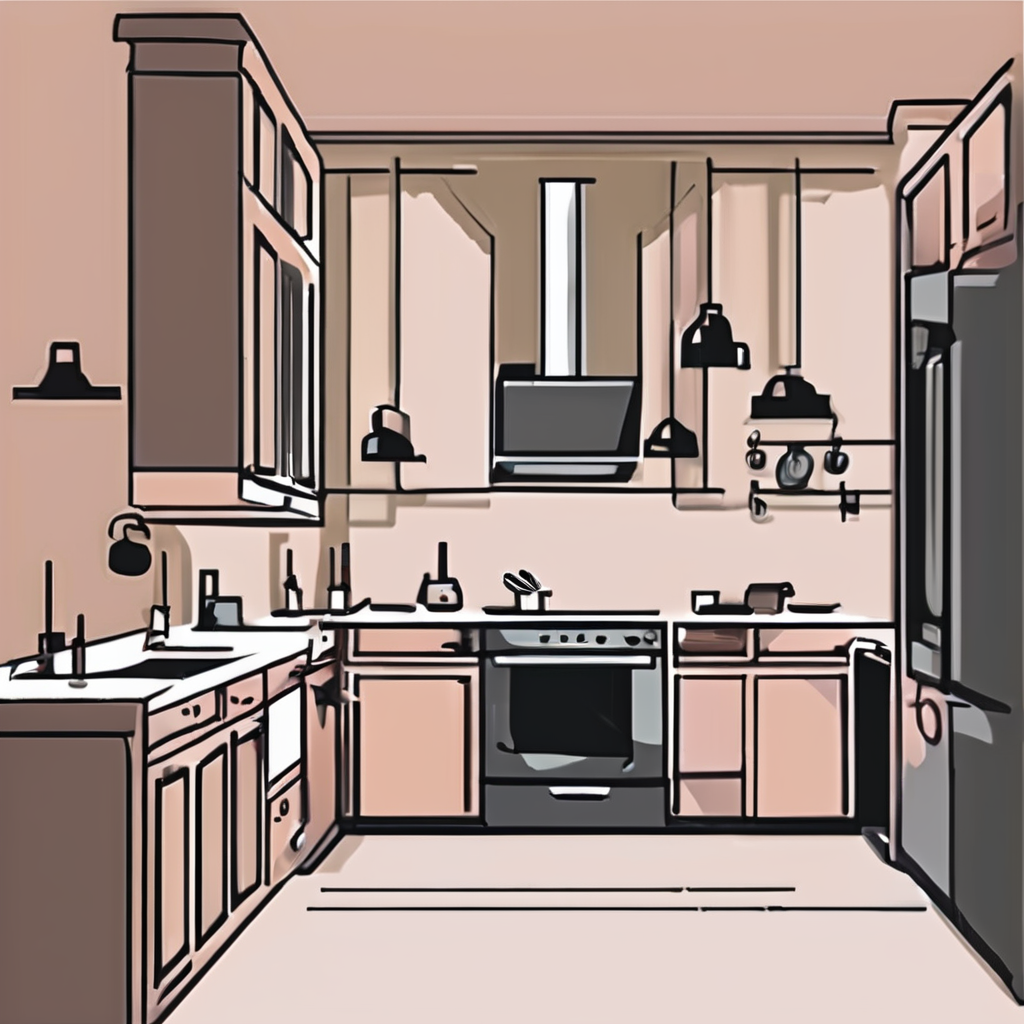Leading innovations transforming UK restaurant kitchens
The UK hospitality tech scene is rapidly evolving, with cutting-edge restaurant technology becoming a cornerstone of operational improvement. Among these innovations, smart kitchen appliances are proving vital in streamlining workflow and enhancing precision. Automation plays a crucial role, from robotic cooking assistants to intelligent ovens that adjust cooking times and temperatures in real time, reducing waste and ensuring consistency.
Leading UK restaurants are quick to adopt these advancements to meet growing demands and maintain high standards. For example, automated food preparation units can handle repetitive tasks such as chopping or portioning, freeing chefs to focus on creativity and service. Integration of these technologies improves not only efficiency but also health and safety standards, a priority in busy kitchens.
Also read : Discover cutting-edge design ideas for uk kitchen bar interiors
Adoption rates of cutting-edge restaurant technology have surged, powered by clear benefits in speed and cost-effectiveness. As technology advances, the hospitality industry in the UK is embracing smarter, more connected kitchens that respond dynamically to operational needs. This trend reflects a broader shift towards digital transformation, reinforcing the value of investing in smart kitchen appliances as essential tools for future-ready restaurants.
Smart appliances shaping the modern kitchen
Blending technology with daily cooking, smart kitchen appliances have transformed how we approach meal preparation. The rise of IoT kitchens introduces connected cooking devices that enable real-time management of your kitchen environment. These appliances communicate with each other and your smartphone, allowing you to adjust oven temperatures or monitor fridge contents remotely. This seamless integration helps improve cooking precision and food quality.
Also to discover : Exploring cutting-edge strategies uk bars use to slash their carbon footprint
In the UK, several brands and suppliers are spearheading this smart kitchen revolution. They focus on designing user-friendly devices that fit into modern lifestyles, enabling cooks to save time and reduce waste. By leveraging connectivity, these products streamline kitchen workflows, enhancing productivity significantly.
The benefits go beyond convenience. Smart appliances reduce guesswork, ensuring consistent results and healthier meals. For example, precision cooking tools adjust heat automatically, preventing overcooking. Overall, the adoption of connected cooking devices supports a more efficient and enjoyable kitchen experience, marking a clear step toward the future of home cooking.
Automation and robotics in UK food preparation
The rise of kitchen automation is transforming the landscape of UK restaurants. Robotics in UK restaurants now handle repetitive cooking and prep tasks with remarkable precision, freeing human staff to focus on more complex duties. Automated food prep systems excel in tasks like chopping, mixing, and even basic assembly of dishes, increasing efficiency.
Notably, several UK restaurants have pioneered this shift. By adopting robotics in UK restaurants, these establishments report striking cost savings. For instance, automated food prep significantly reduces labor costs by minimizing the need for staff to perform routine tasks. This allows businesses to redeploy employees to customer service or creative roles, improving overall workplace satisfaction.
In addition to cost benefits, kitchen automation enhances consistency in food quality, reducing human error. Robotics in UK restaurants can operate continuously, ensuring high output during peak times without compromising standards. As robotics technology advances, more UK restaurants are exploring automation solutions to remain competitive and meet growing demand efficiently. Employing kitchen automation is no longer just an option — it’s becoming essential for modern food preparation.
AI-driven kitchen and inventory management
AI kitchen management is transforming how restaurants handle forecasting, order management, and waste reduction. Using advanced algorithms, AI restaurant systems can predict ingredient needs with remarkable accuracy. This predictive inventory capability helps kitchens avoid over-ordering or running out of crucial supplies, leading to smoother operations and significant cost savings.
For example, British AI startups have developed platforms that integrate seamlessly with point-of-sale systems and supplier networks. These platforms analyze historical sales data, seasonal trends, and even local events to optimize stock levels. The result is a reduction in food waste—one of the most pressing challenges in foodservice—and enhanced responsiveness to dynamic customer demand.
Moreover, AI kitchen management enhances decision-making by flagging unusual consumption patterns or potential supply shortages before they escalate. This reduces operational errors and staff stress, allowing teams to focus on quality and customer experience. With continuous learning, these AI restaurant systems improve over time, becoming indispensable tools in modern kitchens aiming to balance efficiency and sustainability.
Sustainable innovation and eco-friendly kitchen technology
Sustainable restaurant technology is rapidly transforming UK kitchens. Eco-friendly kitchens now incorporate energy-efficient appliances designed to reduce electricity and water consumption significantly. For instance, many restaurants have adopted induction cooktops that heat faster and use less power than traditional gas stoves, substantially cutting energy use.
Leading UK chains showcase remarkable sustainability initiatives. One chain integrated LED lighting across all kitchen areas and installed energy recovery ventilation systems to reduce waste heat and improve air quality. These steps not only decrease the environmental footprint but offer long-term cost savings by lowering utility bills and maintenance expenses.
Investing in eco-friendly kitchens presents benefits beyond immediate savings. Using energy-efficient appliances extends equipment life and reduces the frequency of replacements, enhancing operational reliability. Furthermore, sustainable restaurant technology aligns with growing consumer expectations for responsible business practices, supporting brand loyalty and market differentiation.
Such green innovations are no longer luxury options but essential strategies for restaurants seeking to stay competitive while championing environmental responsibility. Exploring how these technologies work can help operators make informed decisions tailored to their sustainable goals.
Implementation insights and expert-driven trends
Integrating tech implementation in restaurants requires a strategic balance of efficiency and user adaptation. Industry expert opinions emphasize that success hinges on clear staff training and choosing solutions compatible with existing workflows. In the UK, technology adoption is steadily increasing, but challenges like initial costs and resistance to change remain significant barriers.
A common challenge is ensuring that new kitchen systems seamlessly communicate with point-of-sale and inventory software. Without integration, restaurants risk creating more complexity instead of simplifying operations. Experts suggest phased rollouts and pilot testing to mitigate such issues. Additionally, ongoing support and updates are critical to maintaining system reliability and staff confidence.
UK hospitality leaders highlight that embracing technology not only enhances operational efficiency but also boosts customer satisfaction and staff morale. They recommend prioritizing intuitive interfaces that reduce the learning curve and align with evolving dining trends. The emphasis is on technologies that offer measurable returns, such as reduced food waste and faster service times.
Looking forward, the future of kitchen tech in UK restaurants will likely focus on AI-driven tools and greater automation. This progression is expected to deliver more personalized dining experiences while optimizing back-of-house operations.

